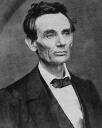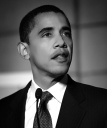Do I have a bias as an aspiring historian? Do I have personal and cultural preconceptions that hopelessly doom me to not treat certain people, events and institutions fairly? Before you judge me, ask yourself the same question. Then feel free to respond.
Here’s a Précis of an article (I had to write for my “Historical Research Methods” Graduate Class) that I found fascinating:
McCullagh, C. Behan. “Bias in Historical Description, Interpretation, and Explanation.” History & Theory, Feb 2000, Vol. 39 Issue 1, p 39-66.
The question of historical objectivity seems to rest within a philosophical debate of epistemology. In our quest for pure history void of bias, McCullagh argues that there are two main types of biases: personal and cultural. The former correctable and the ladder, not so correctable. Within these two types of biases are four different ways in which historians express their bias: 1) misinterpretation of data; 2) omission of data; 3) incorrect descriptions of data; and finally, 4) misguiding the reader. Not all are intentional and some are correctable depending on the source of the bias.
Much like the idea that an army is a reflection of the society and culture that has produced it, so too is the historian. Because we are human we are fallible and some argue we are hopelessly destined to be unable to remove those cultural forces at play. But are we to simply accept the notion that we are destined to produce, even if ever so subtly, bias interpretations of history? McCullagh seems to argue yes and no.
Personal bias can and should be scrutinized and avoided in McCullagh’s opinion. By using “reasoning” strategies that focus on “detachment,” “fairness,” and “honesty” good historians can avoid personal bias. For example, historians must ask themselves: Why did he or she select the topic of study for their examination? Does the historian have an agenda? When a Christian sets out to write about the Great Crusades, is he seeking to right some perceived wrong in written history? The mere act of selecting a topic expresses some point view by the historian and therein a bias, does it not? A historian is looking for something when he selects a topic, something that they want to find. If the historian can employ critical control and be conscious of his own personal bias, he can largely avoid it, according to McCullagh. He can avoid misinterpretations and omissions, errors in descriptions, and therefore not mislead the reader.
The possible problem with McCullagh’s belief in removing personal bias from historical interpretation is the idea of “detachment.” How does one consciously remove those biases? I find this to be wishful thinking on McCullagh’s part. For as he admits, cultural bias is very difficult to understand and correct, and with that being said individual bias flows from culture. It seems the only way to truly avoid personal bias would be for historians to be assigned topics to describe, interpret and explain. When the historian does not have a vested personal interest in the event(s), then, maybe, a pure historical record void of prejudice could be produced. But even then, we have to question what is assigned to the historian, who assigns it, how was it assigned, and why was it assigned?
Cultural bias is a completely different animal than personal bias, as McCullagh admits. Cultural relativism and bias stem from societal circumstances. How we see the world is ultimately how we are impacted by the environment in which we have lived. Each generation reinterprets history from its own ideological view of it. We use history. Historians become not truth seekers, but cultural warriors. They are reflections of their society and time, and how and why they wield the pen, speaks as much about them as how and why an army fights a war.


